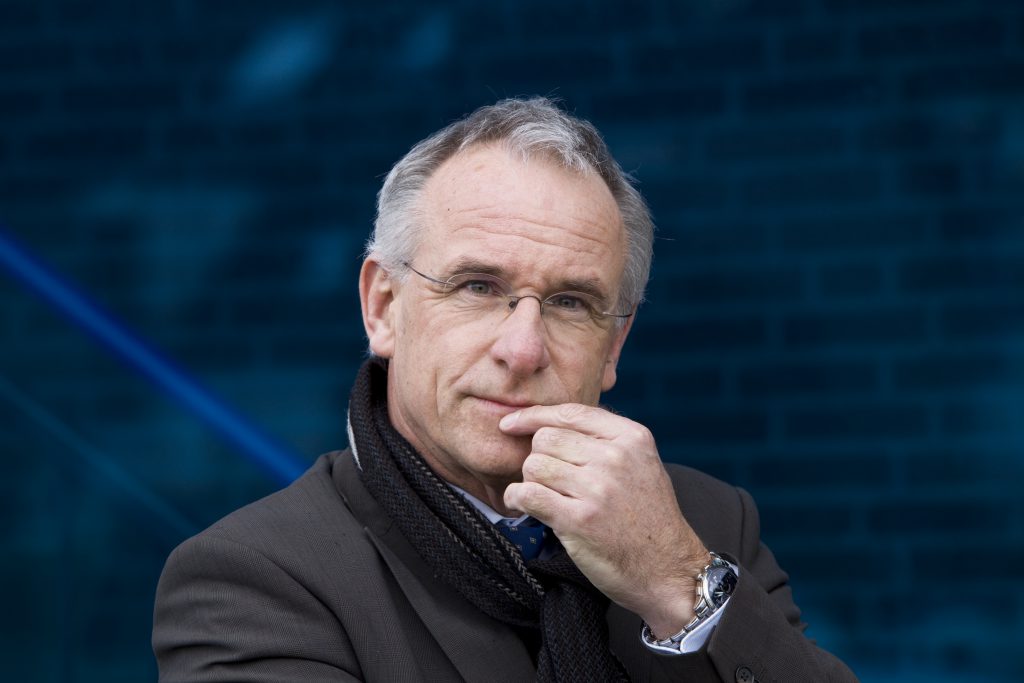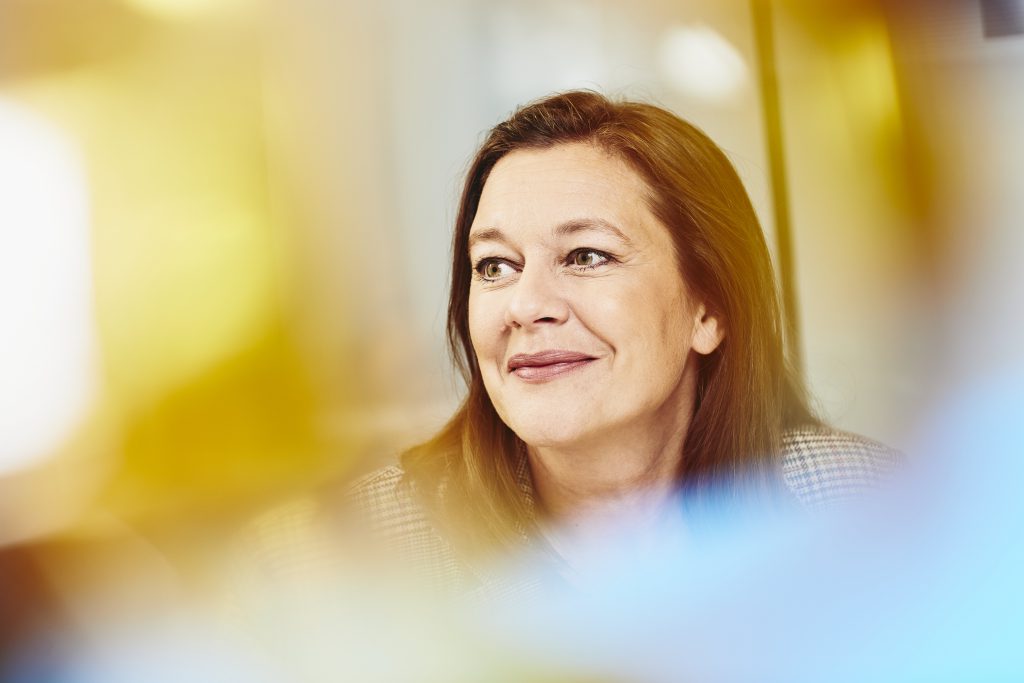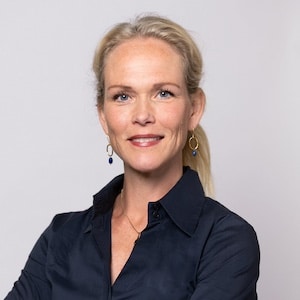Board Talk: ‘Being critical of energy consumption must be first nature’
Sufficient employees with the right skills is one of the most important conditions for a successful energy transition. And Dominique Hermans, Managing Director Randstad Netherlands, and Hans Snijders, Chairman of the Executive Board of Nova College, would like to contribute to this. “We have to be more economical with what is available to us in our working and living environment.”
When it comes to the energy transition and talent, we of course cannot escape the current corona crisis. How does it affect talent development?
Dominique Hermans: “This crisis is changing the labor market enormously. Arrived in April 41,000 people in the WW . We did not help them find another job tomorrow. If we previously had two applicants for a job… ”
Hans Snijders: “You will have ten later.”
Hermans: “Indeed. You have to work harder to distinguish yourself. We now offer coaching to all our people who have become unemployed. Together we look at their options.”
Cutters: “Are you already using something of a skills passport, which we are developing in the MRA House of Skills ? ”
Hermans: “We now only use a professional statement. This allows us to validate the practical experience of a customer. It would certainly be nice to link this to the skills passport, which also includes training and certificates. one statement even more valuable. ”
Cutters: “I think our experiences are an extension of each other. In many of our vocational training courses, internships are part of the exam. Some internships have been discontinued completely due to the crisis, while others, for example in healthcare, are asking whether students come to work full-time. Our main challenge was therefore: how do we ensure that these students can still complete their studies? In addition, we are thinking about the sectors where there is currently no question: can we not offer the students another short-term training course, for example for six months, so that they can then continue their studies or move to another place on the labor market more quickly. ”
Hans Snijders, Chairman of the Board of Nova College
“Within our MyTec, GreenBizz and Smart Maintenance training courses, we already offer training courses that train for jobs in the energy transition.”
Hermans: “New entrants on the labor market will have a hard time. How can you present yourself in a new job to the maximum, if you spend half the time at home and you get to know your colleagues and your work much more slowly? These are issues of which I lie awake. Of those 41,000 new unemployment benefits, 25,000 were from young people. What does that do to the labor market, what does that do to this generation, with their chances of a good job, growth, personal development? ”
Cutters: “I think we can work together on this. Those young people have skills, they have knowledge. How are we going to help them to make a successful entrance?”
Hermans: “We should definitely talk about that.”
In the previous interview from this series Barbara Baarsma and Victor Everhardt came up with the idea of starting a talent program for the energy transition. Also because a lot of employment seems to be created in the coming years. They came up with the working title EnergyConnect, with of course a nod to the Board program.
Cutters: “That is certainly an interesting thought. TechConnect runs very well, so we can certainly develop the idea behind it more widely. Within our MyTec, GreenBizz and Smart Maintenance courses, the latter under the Techport flag, we already offer courses that train for jobs in the energy transition. ”
“The energy transition is not only about new technology, about renewable energy and about investments, but also about finding enough people to make this happen in the first place.”
Hermans: “It’s fantastic that you have those courses. The energy transition is not only about new technology, about renewable energy and about investments. The challenge of this transition is also: finding enough people to do this in the first place. Five to ten years ago we couldn’t find people to install solar panels, so we started training them ourselves. I think it would be interesting to see how we can scale this up in a collaboration, so that even more people can benefit. So it is certainly interesting to explore this. To join forces, to investigate exactly where the shortages are, which numbers we can attach to them and how we can then train. At TechConnect, which we are closely involved in, this also works well. We use this to make the IT labor market more inclusive. We recently hired someone from the program ourselves. When you hear the testimony of someone like that, it is really fantastic. ”
I understood that you are already very involved in the energy transition in your internal organization.
Cutters: “We have joined one Community of Practice: Circular Procurement of the Board. I found that very educational. How do you purchase and what requirements do you set for it? This ranges from toilet paper to fuel oil and gas, but also about how you handle your buildings. In the coming period we will open new buildings in Haarlem. We have new furniture for that, from furniture that meets certain standards. A condition for delivery was also, for example, that the supplier had to recycle the old furniture. Working like this is a mindset. Every step we take is part of the optimization of sustainability and energy consumption. And every step also means that we will not go back. If we can get a product cheaper elsewhere and then have to bargain on sustainable aspects, we will not do it. ”
Hermans: “We too try to operate more and more energy neutral. We try to work with suppliers who have an eye for this and are consciously concerned with what we can reuse. I am quite proud of our head office. That was already thirty years ago with a sustainable mindset. built and we still enjoy using it. At the same time, of course, we try to make it even more sustainable. For example, we now have LED lighting and motion sensors, which already results in considerable savings. We rent most of the branch locations, but we also monitor them well. somewhere the energy bill is too high in the benchmark, we meet with the landlord: we expect them to take measures. And we invest in sustainable mobility. Many of our people are on the road every day; we experiment with shared cars and electric bicycles. ”
Cutters: “Does that work? We are investigating how we can stimulate electric bicycles to spare public transport in the coming period.”
Hermans: “At the head office the experiment has certainly been successful. Some use the bicycle to go to customers, others for commuting. Now we have expanded the experiment to four other locations. We have chosen to do this with a specialized organization. works, which also offers a reservation system. ”
Dominique Hermans, Managing Director Randstad Netherlands
What is your personal involvement in this topic? Why are talent development and the energy transition so dear to you?
Cutters: “My most important drive is the youth of today. They have the future, they must also be able to live and live pleasantly. Then it helps enormously if we achieve the climate targets and think about our energy consumption. Our second, or perhaps must be first nature. We are nothing without trees, birds and everything that goes with them. ”
Hermans: “That is a great vision. I have been working at Randstad for twenty years because I think it is important to do something for society in this way. Of course, I also like the commercial aspect of my work, which also gives me drive. but only because we do something for society in this way. That people can work, do something valuable with their lives, use their talent and thus realize prosperity for themselves. But that does not stop at work. The preconditions for this are a good working environment and a good living environment. That is why we have to be more economical with what is available to us in the area. ”
Text: Mirjam Streefkerk
Board Talk
The interview with Dominique Hermans and Hans Snijders is part 3 in the Board Talk series. In this series we talk with Board members about the biggest challenges for the Amsterdam metropolis. A region which offers healthy, sustainable living, responsible digitalisation and meaningful work for everyone. These are also the most important themes for the Amsterdam Economic Board. Read more interviews in the Board Talk series.
What the Board is doing within the energy transition
With our initiative LEAP we are at the beginning of impactful changes in the data center chain. Would you like to join the LEAP coalition and participate in a pilot, please contact: Marjolein Bot .
In the context of the corona crisis, the Board is working on economic recovery with respect for the climate challenge. Read here how we do that.
- Read more about our metropolitan challenge Energy.
- Read more about the program of the Board TechConnect.
- Read more about High Impact Procurement at the Board.
Would you like to receive our most important news in your mailbox from now on? Then sign up here for our monthly Board Update.
4 June 2020
Read more about
Contact us
Want to keep up to date?
Get the best regional news and events (in Dutch) via the Board Update newsletter
Share this news
Want to keep informed?
Follow us daily on LinkedIn and sign up for the Board Update newsletter.
Read more
- On 14 and 15 October, board members of the Amsterdam Economic Board convened for ...
- Focusing more on women in health care innovation and research will have ...
- What is the Amsterdam Metropolitan Area’s position on critical raw materials? ...



